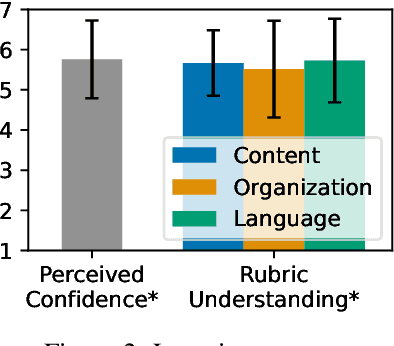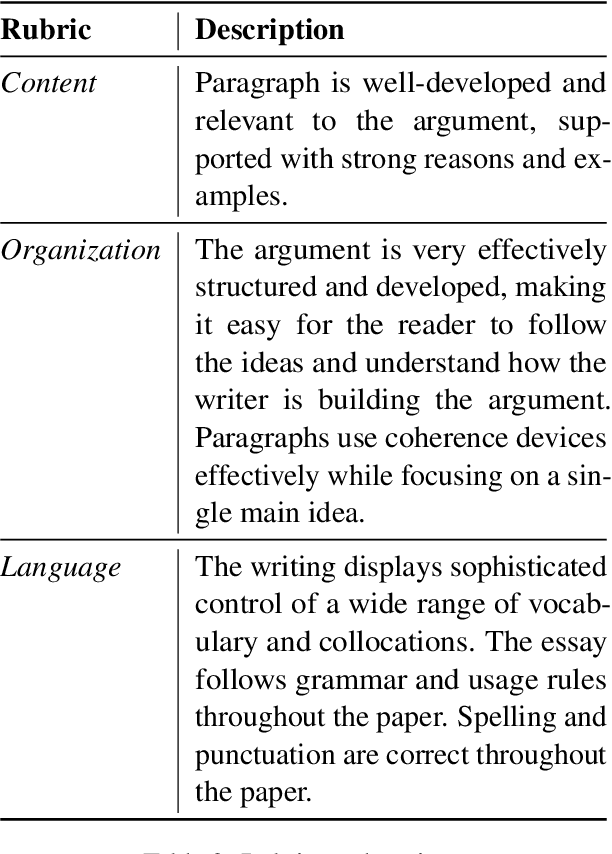FABRIC: Automated Scoring and Feedback Generation for Essays
Paper and Code
Oct 08, 2023



Automated essay scoring (AES) provides a useful tool for students and instructors in writing classes by generating essay scores in real-time. However, previous AES models do not provide more specific rubric-based scores nor feedback on how to improve the essays, which can be even more important than the overall scores for learning. We present FABRIC, a pipeline to help students and instructors in English writing classes by automatically generating 1) the overall scores, 2) specific rubric-based scores, and 3) detailed feedback on how to improve the essays. Under the guidance of English education experts, we chose the rubrics for the specific scores as content, organization, and language. The first component of the FABRIC pipeline is DREsS, a real-world Dataset for Rubric-based Essay Scoring (DREsS). The second component is CASE, a Corruption-based Augmentation Strategy for Essays, with which we can improve the accuracy of the baseline model by 45.44%. The third component is EssayCoT, the Essay Chain-of-Thought prompting strategy which uses scores predicted from the AES model to generate better feedback. We evaluate the effectiveness of the new dataset DREsS and the augmentation strategy CASE quantitatively and show significant improvements over the models trained with existing datasets. We evaluate the feedback generated by EssayCoT with English education experts to show significant improvements in the helpfulness of the feedback across all rubrics. Lastly, we evaluate the FABRIC pipeline with students in a college English writing class who rated the generated scores and feedback with an average of 6 on the Likert scale from 1 to 7.
 Add to Chrome
Add to Chrome Add to Firefox
Add to Firefox Add to Edge
Add to Edge